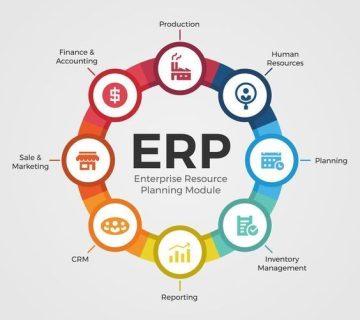The role of big data in supply chain management has been rapidly evolving and growing in recent years. As big data evolves, so does its importance in supply chains. Many businesses now utilize big data analytics to improve operations and make better business decisions. The benefits of big data are vast, and one can apply them in several ways to optimize a supply chain. However, big data is not a silver bullet, and a company must carefully consider its role in supply chain management. This article will explore the current role of big data in supply chains and look at some of the trends and challenges.
The History and Development of Big Data in Supply Chain Management
One can trace the origins of big data back to the early days of computing when organizations collected large datasets for use in research and analytics. However, it was not until the late 1990s and early 2000s that companies began to use big data in business contexts. One of the earliest adopters of big data was Walmart, which started using it to track sales and inventory in 2003.
Statistics on the growth of big data in supply chain management
According to a study by IDC, big data will grow at a 33.8% compound annual growth rate (CAGR) through 2020. That is an astounding figure, and it’s clear that big data is playing an increasingly important role in supply chains. The study also found that big data will account for $203 billion in spending by 2020. Big data is a significant investment for businesses, and one can see its impact throughout supply chains.
Current role of big data in supply chain management
Tracking inventory: Big data can help managers make better decisions about what to stock and where to allocate resources by tracking inventory in real-time.
Identifying bottlenecks: big data can help identify choke points in the supply chain and address them before they cause disruptions.
Optimizing pricing: companies can use big data to track competitor prices and adjust prices accordingly.
Forecasting and predictive analytics
There are many ways organizations can use big data to improve supply chains. One of the most common applications is using big data to make better forecasts. Forecasting is essential for making informed decisions about future production and inventory needs. With big data analytics, businesses can have a more accurate picture of what’s going on in their supply chains and plan accordingly.
One of the most promising applications of big data is predictive analytics. Predictive analytics is a powerful tool that uses big data to forecast future outcomes. For example, one can use it to predict demand fluctuations, inventory needs, and supplier performance. Predictive analytics is becoming increasingly popular due to its ability to improve decision-making.
Predictive analytics has several benefits for businesses. Some of the key benefits include:
Improved forecasting:
One of the primary functions of predictive analytics is to improve forecasting. By using big data, businesses can have a more accurate picture of what’s going on in their supply chains and plan accordingly. This leads to better decisions about production and inventory needs.
Greater insight into supplier performance:
By tracking supplier performance, businesses can identify issues early and prevent them from becoming more significant problems. Companies can also use big data to identify potential suppliers and assess their suitability.
Ability to predict demand fluctuations:
Predictive analytics can help businesses predict demand fluctuations, which can help with inventory planning. For example, suppose businesses know in advance when demand will increase or decrease. In that case, they can adjust their inventory levels accordingly.
Increased efficiency:
Predictive analytics can help businesses optimize their operations by identifying inefficiencies and addressing them. This leads to improved overall performance and a more efficient supply chain.
Tracking supplier performance
Another common application of big data is tracking supplier performance. By monitoring supplier performance, businesses can identify issues early and prevent them from becoming more significant problems. Companies can also use big data to identify potential suppliers and assess their suitability.
Trends and future of big data in supply chain management
Big data is constantly evolving, and its role in supply chains will continue to grow. As technology advances, big data will become even more powerful. Businesses will find new and innovative ways to use it. Here are some trends to watch for in the future of big data in supply chain management:
More extensive data integration:
As big data becomes more ubiquitous, businesses will find new ways to integrate it into their supply chains. This will allow for a more holistic view of the supply chain and improved decision-making.
Greater use of cloud-based big data
The cloud is becoming an increasingly popular platform for big data analytics. This is due to the ease of access and the ability to scale up or down depending on needs quickly. Cloud-based big data will continue to grow in popularity. Businesses will find new ways to take advantage of their capabilities.
Challenges of big data in supply chain management
Data quality
While big data offers many benefits, it is not without its challenges. For example, one of the biggest challenges facing big data in supply chain management is data quality. Companies must cleanse and sort big data to be truly effective to remove inaccuracies and inconsistencies.
Growing volume of big data in supply chain management
Another challenge is the ever-growing volume of data. The amount of data companies generate each day is staggering. It is becoming increasingly difficult for organizations to keep up. This presents a challenge for supply chains, which often rely on timely and accurate data to make decisions.
High cost to maintain big data in supply chain management
Finally, big data can be expensive to implement and maintain. Organizations need the resources to collect, process, and analyze big data to realize its benefits. However, as big data becomes more commonplace, these costs are likely to decrease.
The role of big data in supply chain management is rapidly evolving and growing.
Businesses are utilizing big data analytics to improve operations and make better decisions. The benefits of big data are vast, and one can apply it in several ways to optimize a supply chain. As big data evolves, so will its importance in supply chains. Therefore, businesses should keep an eye on the latest trends in big data to stay ahead of the curve.
As big data grows in importance and scale, supply chain managers are increasingly looking to leverage its power to improve their operations. Big data has the potential to provide unparalleled insights into supply chains, helping to optimize inventory, identify bottlenecks, and otherwise improve performance.
There are many challenges and trends to watch for in the coming years. Still, big data is likely to play an increasingly important role in supply chains moving forward.
At Softlink Options, we are keen to ensure our clients’ websites and data are secure. So we invest a lot in data security. So check out all our products and services.
CONTACT US in case of any queries. We take pride in the quality of our products and services.


